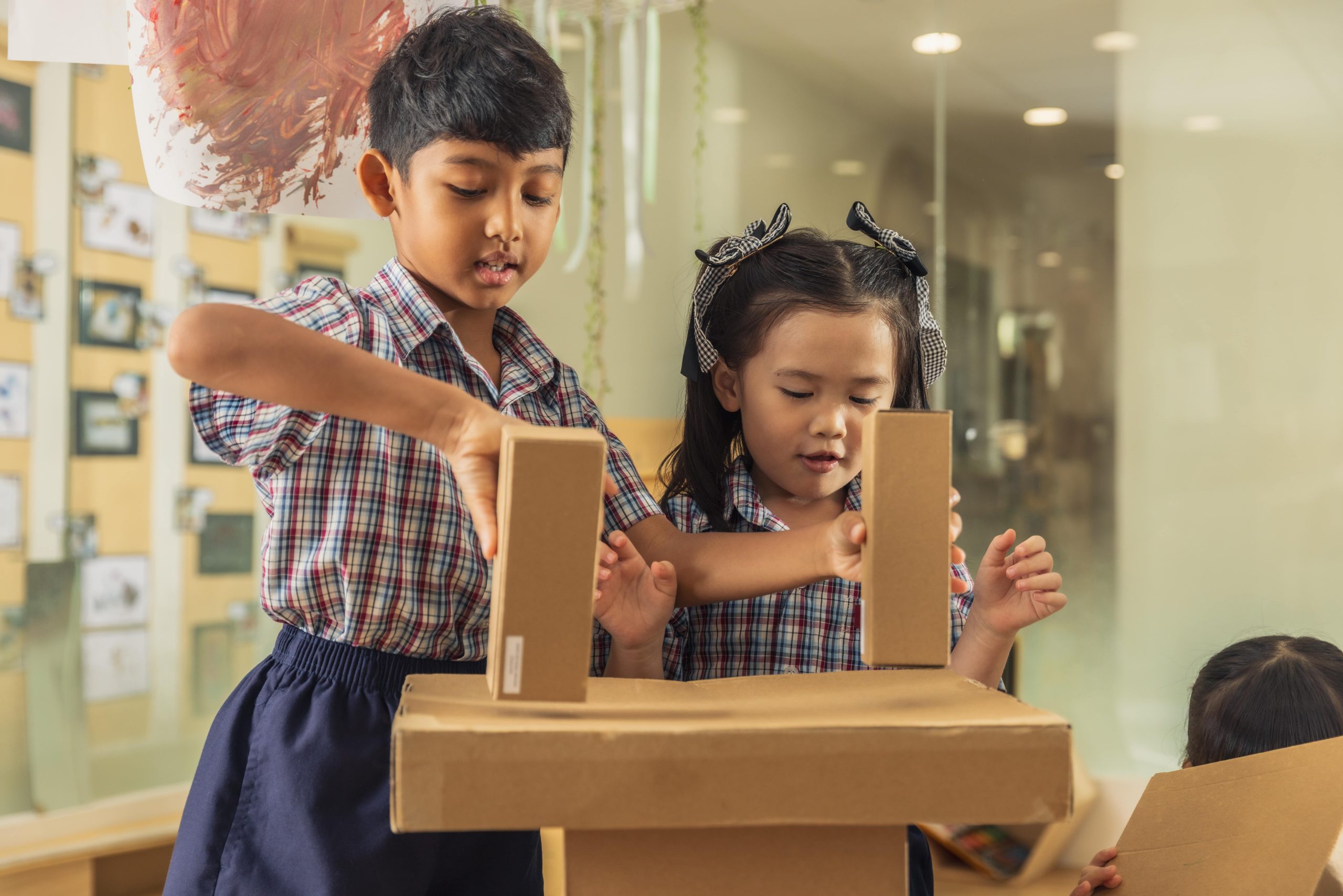Key Takeaways
- Preparing for Primary 1 is about more than just academics—it includes building emotional confidence, independence, and social skills.
- Skills developed through purposeful play and daily routines in preschool help foster primary school readiness.
- Encourage independence at home with small, age-appropriate tasks and positive affirmations to build confidence.
- Maintaining consistent routines at home and talking about primary school in a positive, relatable way can help reduce anxiety in your children and build excitement.
- A preschool with a strong focus on socio-emotional development plays a key role in helping children form healthy relationships and manage new challenges.
Guiding Your Child Through One of Their First Big Milestones

The move from kindergarten to Primary 1 is a significant step, marking the beginning of formal schooling—with new routines, new expectations, and a whole new environment. But with the right support, children can transition into this new phase of life with confidence, curiosity, and a strong sense of self.
At E-Bridge Pre-School, we believe that preparing for Primary 1 isn’t just about academics. It’s about nurturing emotional confidence, building essential skills, and supporting families through each step. Here’s how you can help your child take this important step with confidence and care.
1. Reflect on the Skills They've Already Gained
The first step in preparing for Primary 1 is to recognise the strong foundation your child already has. Through purposeful play, project work, and inquiry-based exploration, high-quality kindergartens in Singapore like E-Bridge Pre-School build crucial life skills every day. From problem-solving to teamwork and communication, these are the very same qualities they’ll rely on in primary school.
2. Strengthen Independence in Daily Routines
When preparing your child for Primary 1, it’s important to help them feel more confident managing simple tasks on their own. At E-Bridge Pre-School, our educators gently encourage children to take ownership of their everyday routines—like packing their bags, putting on their shoes, or clearing their plates after snack time.
At home, these habits can be reinforced through trust and encouragement. Give your child space to try, and acknowledge their efforts with phrases like “You did that all by yourself!” or “I can see how much you’ve grown.” These small affirmations support independence in preschool children, helping them feel ready to take on new responsibilities.
3. Establish Routines That Make a Difference

Young children feel more confident when their day has a rhythm. As one of the best childcare centres in Singapore, E-Bridge Pre-School establishes daily routines—from mealtimes and play sessions to learning activities—designed to help children feel safe, settled, and ready to explore.
You can bring this sense of stability into your home, too. Keeping mealtimes consistent, having a set bedtime, or sharing a story each evening helps your child know what to expect. While preparing your child for Primary 1, these familiar routines make new experiences feel less overwhelming and more manageable.
4. Talk About the Transition in a Positive Way
Children look to the adults they trust to understand how to feel about new experiences. At E-Bridge, educators speak about transitions with warmth and optimism, helping children feel secure and supported every step of the way.
Use familiar experiences to make the upcoming change relatable. You might say, “Just like how you made new friends at E-Bridge, you’ll meet kind new classmates in Primary 1 too!” Invite your child to share how they feel, listen attentively, and respond with reassurance: “It’s okay to feel nervous—trying something new can feel that way at first.” Framing the experience with empathy helps make early childhood transitions less daunting.
5. Focus on Social-Emotional Skills, Not Just Academics
Academic readiness is important, but your child’s ability to manage emotions, express needs, and relate to others is just as critical when preparing for Primary 1.
At E-Bridge Pre-School, emotional development in preschool is nurtured through daily interactions and meaningful routines. Children learn to take turns, ask for help, and resolve conflicts with guidance from caring educators. At home, you can support this growth by noticing and naming their efforts: “That was kind of you to share,” or “I saw how you stayed calm even when you felt upset—that’s really brave.”
These social-emotional skills help build resilience, empathy, and confidence, supporting your child’s success both in and out of the classroom.
Supporting Your Child’s Journey With Confidence
Preparing your child for Primary 1 is a gradual process—built on strong relationships, consistent routines, and the small steps children take each day towards greater independence.
Looking for a nurturing near you? At E-Bridge Pre-School, our Reggio Emilia-inspired, guided-inquiry approach is thoughtfully designed to build the social, emotional, and practical skills your child needs for a confident start. From daily routines to relationship-building and independence, we’re here to support every step of your child’s journey.
Start your child’s Primary 1 journey with E-Bridge—where readiness meets confidence. Register your interest with us today.
